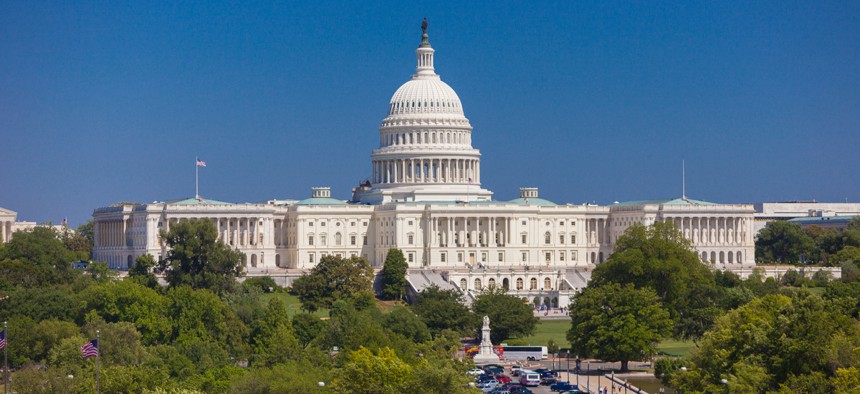Lawmakers Want ‘Immediate Action’ to Encrypt Calls Between the House and Senate

Rob Crandall/Shutterstock.com
The group is pushing for increased security for legislative branch communications due to spying threats.
A bicameral, bipartisan coalition of nearly two dozen lawmakers Tuesday called for telephone calls between the Senate and House of Representatives to be secured and encrypted due to threats of “foreign government surveillance.”
In a May 19 letter to Senate Sergeant at Arms Michael Stenger and House Chief Administrative Officer Philip Kiko, lawmakers called for “immediate action to encrypt, in bulk, all internal calls and other electronic communications between the Senate, House and other components of the legislative branch.”
In recent years, the Senate and House introduced encryption to calls made with desk phones within their individual facilities, but communications made across the networks remain at risk of surveillance or hacking by foreign governments, the lawmakers said.
“Encryption of intra-chamber phone calls is important, but it does not fully address the surveillance threat,” the letter states. “Calls between the Senate and House are still vulnerable to spying by anyone who gains access to the data connection between the two Chambers. Congress must secure itself from the serious threat posed by foreign spies.”
Sens. Angus King, I-Maine, Ben Sasse, R-Neb., Chris Van Hollen, D-Md., James Lankford, R-Ok., Edward Markey, D-Mass., John Cornyn, R-Texas, Kamala Harris, D-Calif., Jerry Moran, R-Kansas, Brian Schatz, D-Hawaii, and Kevin Cramer, R-N.D. signed the letter. From the House, it was signed by Reps. Mike Gallagher, R-Wisc., Raja Krishnamoorthi, D-Ill., Michael Waltz, R-Fla., Dutch Ruppersberger, D-Md., Michael McCaul, R-Texas, Ted Lieu, D-Calif., and Will Hurd, R-Texas.
The members asked for a plan to encrypt calls between the House and Senate by June 12.
The lawmakers pointed to guidance from the Defense Department that encourages all levels of government to encrypt their unclassified networks. DOD, for example, uses public key encryption to mask data and activity on its networks from intruders.






